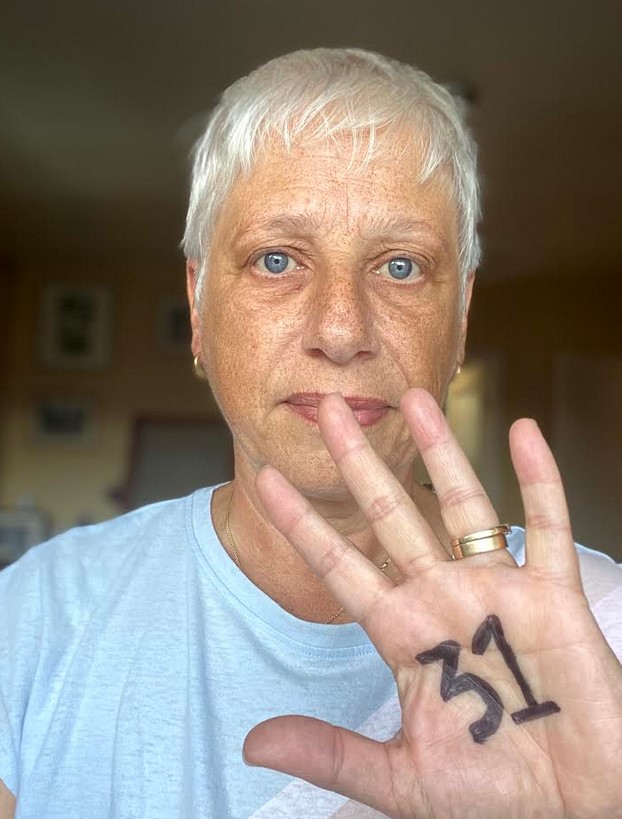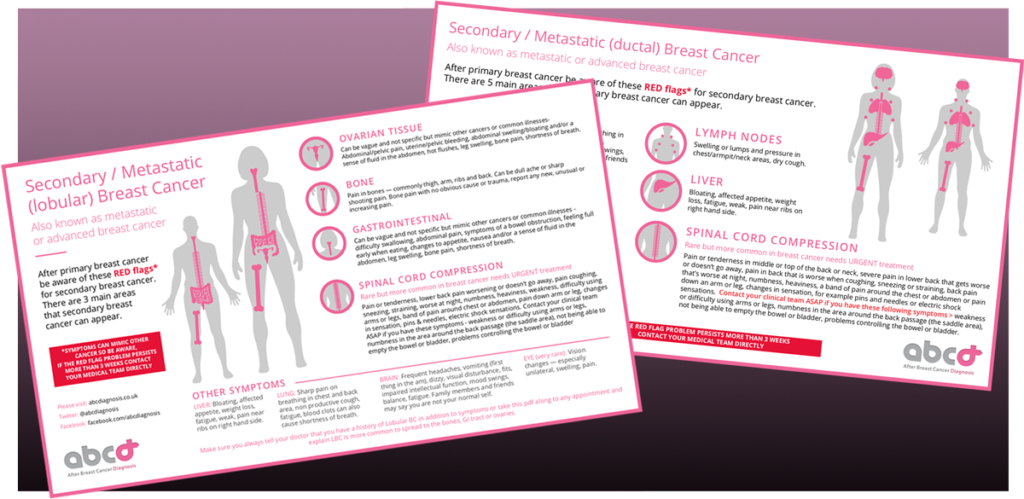
I was diagnosed with Grade 3 primary breast cancer in my left breast in January 2016 and am now cancer free. That sounds great to me. I’m one of the lucky ones. My cancer was detected at my second routine mammogram when I was 54 and hadn’t spread outside of my breast. My lymph nodes were clear. The pathology of my tumour was oestrogen, progesterone and HER2 positive. The timing of that mammogram possibly saved my life, as did the makeup of my tumour and my treatments – mastectomy, four doses of Taxotere and Cyclophosphamide and a year’s worth of Herceptin injections. I feel incredibly lucky.
So why am I writing this blog for METUP UK which is a metastatic breast cancer (MBC) patient advocacy group? After all, I was a primary breast cancer patient, and I don’t have cancer anymore…
One of METUP UK’s objectives is awareness and education. This is really important to me as a primary breast cancer patient because I want to understand and recognise MBC symptoms. I discovered METUP UK through my need to be aware and to educate myself. Although my prognosis was very good and my chances of recurrence very low, I’m not complacent. I don’t worry daily about my cancer recurring in another part of my body but I am aware of the possibility, and my anxiety really ramps up if I have an unexplained pain or ache which persists for more than three weeks. I want to know what the symptoms of MBC are so that I know when to ask for further investigation and support. And whilst I can’t make every primary patient want to know, I do try to encourage others to educate themselves too.
I know it’s a scary thought, but I’d like to know sooner rather than later if my cancer has come back. This early detection of metastatic disease is really just important as having mammograms and checking our breasts, necks and armpits. The earlier we find something that may be breast cancer, the sooner treatment can begin. Being aware of the symptoms of MBC is no different. Having educated myself, I know that my type of ductal breast cancer is most likely to recur in my bones, liver, brain, lymph nodes or lungs. Knowledge is key. Awareness means that we can present earlier for diagnosis and treatment, and improve our quality of life and survival prospects.
I was active on social media when I was diagnosed and still am. I was keen to find out about treatments, and surgery and to make connections in the breast cancer world. There are many individuals, charities and groups all sharing their knowledge and research and I wanted to tap into it all. Pretty quickly I became aware of After Breast Cancer Diagnosis, which was founded by Jo Taylor. Specifically, her infographics, which share red flags for symptoms of breast cancer recurrence and explain which organs the recurrence is most likely to appear in. METUP UK disseminates and promotes these infographics because all too often health care professionals do not have the necessary conversations with patients about recurrence.
METUP UK also works hard to improve research and access to drugs. Access to MBC drugs is a complex subject and I am not the person to write in depth about it. I understand that accessing drugs and clinical drug trials as an MBC patient can be very difficult and complicated. I’m in a WhatsApp group with MBC patients and I read despairingly the heart-breaking messages on there from women who just cannot get the drugs they need to prolong their lives or to improve their quality of life. Too many young women die prematurely from MBC because of lack of funding or regulatory red tape from government and drug companies which slows down drug approval.
Patients living with MBC are forging a path for possible future MBC patients like me. They are helping to ensure that new drugs continue to be developed and access to existing drugs can be improved. Patients who take part in clinical drug trials often experience debilitating side effects. They continue because often it’s the only route left to them, but also because they want to be the vessel through which breakthroughs are made. Campaigns such as #TroveldyNow started by METUP UK, and picked up by Breast Cancer Now, are making a difference. It’s often tragically too late for these campaigners but it may not be for those following behind and standing on their shoulders.
MBC is often swept under the carpet like a dirty secret. But if it’s not talked about, it’s not like it will go away, and we won’t have to think about it… As a woman who has had primary breast cancer, I will still worry that MBC is something that could happen to me. We should be shouting and screaming about it. 31 women and men die every single day from MBC. That is something to be angry about. I’m angry about it. September seemed to be filled with the news of women dying from MBC and I want that awful sad role call to stop. But there really is no end in sight right now…
This is why I support METUP UK and why I hope that more and more primary breast cancer patients will get behind the group and join me in advocating for MBC patients. Now that it’s October, which is Breast Cancer Awareness Month, the focus will be on the prevention of breast cancer. Of course this is important and we all need to know how to self check, which can mean finding tumours earlier. But I would like to see more than the current one day in the month devoted to Metastatic Breast Cancer. Let’s all get behind METUP UK in its campaign to educate, and advocate and increase access to life extending drugs.
Women living with MBC are working hard to ensure that the landscape will be greatly improved for the women diagnosed with MBC in the future. I thank and salute them all.


